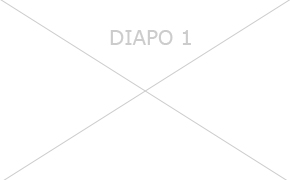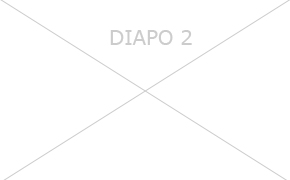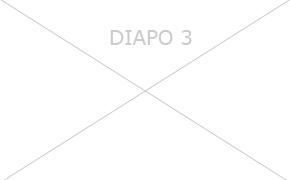Informations générales
Entité de rattachement
Le CEA est un acteur majeur de la recherche, au service des citoyens, de l'économie et de l'Etat.
Il apporte des solutions concrètes à leurs besoins dans quatre domaines principaux : transition énergétique, transition numérique, technologies pour la médecine du futur, défense et sécurité sur un socle de recherche fondamentale. Le CEA s'engage depuis plus de 75 ans au service de la souveraineté scientifique, technologique et industrielle de la France et de l'Europe pour un présent et un avenir mieux maîtrisés et plus sûrs.
Implanté au cœur des territoires équipés de très grandes infrastructures de recherche, le CEA dispose d'un large éventail de partenaires académiques et industriels en France, en Europe et à l'international.
Les 20 000 collaboratrices et collaborateurs du CEA partagent trois valeurs fondamentales :
• La conscience des responsabilités
• La coopération
• La curiosité
Référence
2025-37856
Description de l'unité
Notre Service dédié au Génie Logiciel pour la Simulation (SGLS) réalise et maintient des plateformes génériques, pérennes et open source dans le but :
- de développer des codes de calcul parallèles en mécanique des fluides à différentes échelles (https://sourceforge.net/projects/trust-platform/)
- d'exploiter les codes de calculs à l'aide d'outils de mise en données, prétraitements et postraitements, standards ou spécifiques ;
- de fournir aux physiciens les méthodes et outils leur permettant d'optimiser leurs conceptions et de traiter les incertitudes de leurs études de sureté.
Le Laboratoire d'Intelligence Artificielle et de science des Données (autrement nommé le LIAD) réalise et maintient une plateforme générique, pérenne et open source pour fournir à nos physiciens des méthodes et outils leur permettant d'améliorer leurs modèles, d'optimiser leurs conceptions et de traiter les incertitudes de leurs études : la plateforme Uranie.
Uranie ? Oui, notre plateforme permet dans l'approche VVQI (Validation, Vérification et Quantification d'Incertitude) de créer des plans d'expériences adaptés aux besoins d'une analyse de sensibilité, d'un problème d'optimisation ou de la génération d'une base d'apprentissage ou de test pour un modèle de substitution.
Uranie permet de piloter le lancement des codes ou fonctions de manière séquentielle ou avec différentes approches de parallélisation.
Description du poste
Domaine
Mathématiques, information scientifique, logiciel
Contrat
Stage
Intitulé de l'offre
INTERNSHIP - AI for Thermal Hydraulics - 6 months - Saclay H/F
Sujet de stage
Development and Uncertainty Quantification of Machine Learning Models for Critical Heat Flux Predictions
Durée du contrat (en mois)
6
Description de l'offre
At the Institute of Applied Sciences and Simulation for Low-Carbon Energies (ISAS) of the CEA, we focus on research and innovation in analytical sciences. As data analysis plays a pivotal role, we are interested in methodological advancements in statistics, mathematics and computer science, for instance, via the development of state-of-the-art AI models, adapted to our needs.
The Critical Heat Flux (CHF) is a physical phenomenon that may cause the deterioration of the heat transfer in the core of nuclear reactors, potentially leading to core damage. Its accurate prediction is therefore a crucial issue in nuclear reactor safety. The internship deals with the prediction of the CHF through the development of machine learning techniques and the quantification of the associated uncertainty. It will be realised in the context of an international OECD/NEA project on the development and application of AI methodologies for nuclear engineering.
Within this project, the intern will:
- Perform a preliminary literature review on potential candidate artificial intelligence methodologies (such as world models and latent space alignment architectures).
- Analyse the available experimental CHF database to understand the physical phenomenon and to verify the coherence and exploitability of the experimental data.
- Perform an initial assessment of basic machine learning techniques applied to the prediction of CHF.
- Develop different architectures to predict as accurately as possible the CHF for various geometries, e.g. annular tubes or rod bundles.
- Quantify the uncertainty of the models developed during the internship, applying different state-of-the-art methodologies such as conformal prediction, hierarchical models and other coverage-driven techniques.
- Present and discuss their work during technical meetings and write a final report.
The internship will be conducted at the Service of Software Engineering and for Simulation (SGLS). The service develops and qualifies the simulation tools for enhancing the precision and reliability of the models used to design and analyse the safety of the French nuclear power systems. These studies are performed within the framework of internal CEA projects or in collaboration with several industrial partners (e.g. EDF, Framatome and TechnicAtome) and international partners. The internship will be a joint operation with the Service of Thermal-hydraulics and Fluid Dynamics (STMF).
Moyens / Méthodes / Logiciels
machine learning, uncertainty quantification, deep learning, AI, nuclear engineering, CHF
Profil du candidat
The ideal candidate is a MSc. student (French M2 level) who has a good knowledge of statistics/applied mathematics with an interest in artificial intelligence and neural networks. Basic knowledge of the physics processes underlying the CHF phenomenon will be considered a plus. Good skills in Python coding and code management are required. We welcome previous experience with any major deep learning framework (PyTorch, JAX, Tensorflow) and with uncertainty quantification approaches. Given the international context of the OECD/NEA project, fluency in English is considered necessary (French will be considered a plus).
Localisation du poste
Site
Saclay
Localisation du poste
France, Ile-de-France, Essonne (91)
Ville
Saclay
Critères candidat
Langues
- Français (Intermédiaire)
- Anglais (Courant)
Diplôme préparé
Bac+5 - Diplôme École d'ingénieurs
Possibilité de poursuite en thèse
Non
Demandeur
Disponibilité du poste
01/02/2026

 Je me crée un espace candidat
Je me crée un espace candidat






